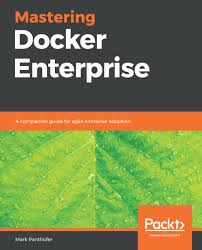This white paper presents a comprehensive guide to using Docker containers and microservices for developing, deploying, and managing content management systems (CMS) and e-commerce platforms such as WordPress, Joomla, and Magento. Leveraging Docker on Ubuntu with the LAMP (Linux, Apache, MySQL/MariaDB, PHP) stack ensures scalable, efficient, and consistent development environments. KeenComputer.com and IAS-Research.com offer critical expertise in enabling this transformation for small and medium enterprises (SMEs).
Docker-Based WordPress, Joomla, and Magento Development: A Technical White Paper on Scalable Web Solutions Using Ubuntu and LAMP
Overview
This white paper presents a comprehensive guide to using Docker containers and microservices for developing, deploying, and managing content management systems (CMS) and e-commerce platforms such as WordPress, Joomla, and Magento. Leveraging Docker on Ubuntu with the LAMP (Linux, Apache, MySQL/MariaDB, PHP) stack ensures scalable, efficient, and consistent development environments. KeenComputer.com and IAS-Research.com offer critical expertise in enabling this transformation for small and medium enterprises (SMEs).
1. Introduction / Executive Summary
Businesses today require flexible, secure, and scalable digital platforms. Traditional CMS/e-commerce deployments often suffer from inconsistencies, slow development cycles, and scalability limitations. Docker containers offer a modular and reproducible environment, enhanced when paired with Ubuntu and the LAMP stack. This paper outlines how Docker-based microservices can streamline WordPress, Joomla, and Magento projects, and how KeenComputer.com and IAS-Research.com can assist in implementation.
2. Business Problem
Common challenges in traditional CMS/e-commerce development include:
- Environment inconsistency across dev, test, and production
- Difficulty in scaling components independently
- Long update cycles and dependency management issues
- Lack of DevOps integration and automation
- High maintenance overhead and deployment errors
3. Technical Solution: Docker, Ubuntu, and the LAMP Stack
Docker Microservices:
- Encapsulate each component (web server, database, PHP runtime) into separate containers
- Use Docker Compose or Kubernetes for orchestration
- Ensure quick replication, rollback, and testing
Ubuntu as the Base Environment:
- Lightweight, stable, and secure operating system for container hosts
- Rich community support and compatibility with open-source tools
LAMP Stack Integration:
- Linux: Ubuntu 22.04 LTS as the OS
- Apache: Flexible web server compatible with most CMS platforms
- MySQL/MariaDB: Reliable database backend
- PHP 8: Modern PHP features with improved speed and security
4. Implementation for CMS/E-Commerce Platforms
WordPress
- Use Docker Compose to create a multi-container setup: WordPress + MySQL + phpMyAdmin
- Bind mount themes/plugins for local development
- Reference: Dockerizing WordPress, WP Engine Guide
Joomla
- Pull Joomla Docker image with Apache and PHP
- Configure persistent volumes for configuration and content
- Use Ubuntu and LAMP base images for compatibility
- Reference: Avonture Joomla Docker Guide
Magento
- Use Magento 2 Docker setup with Warden for local development
- Integrate CI/CD pipelines and staging environments
- Include Elasticsearch, Redis, RabbitMQ in separate containers
- Reference: Magento Docker Setup, Mark Shust’s Docker Magento
5. Benefits of Docker + Ubuntu + LAMP
- Consistency: Identical environments from local dev to production
- Scalability: Independently scale web, database, and cache layers
- Speed: Rapid spin-up and parallel development
- Security: Isolated services reduce the attack surface
- Automation: Seamless integration with GitLab/GitHub Actions and monitoring
6. Use Cases
- Small Business Website: WordPress site deployed using Docker on Ubuntu VPS with custom plugins and WooCommerce
- Government CMS: Joomla-based internal portal containerized and maintained via Kubernetes for redundancy
- E-Commerce Expansion: Magento 2 site scaled using microservices, monitored using Prometheus and Grafana
- Educational Institution: Student portal using Dockerized Joomla with LDAP authentication and custom templates
7. How KeenComputer.com Can Help
- End-to-End Services: From Dockerfile creation to CI/CD automation
- Platform-Specific Expertise: Custom development for WordPress, Joomla, and Magento
- Security and Optimization: Performance tuning, HTTPS integration, analytics setup
- DevOps Training: Workshops for development teams
- Cloud Deployment: Assistance with AWS, DigitalOcean, and Azure deployments
- References: KeenComputer.com Cloud & DevOps Solutions
8. How IAS-Research.com Can Help
IAS-Research.com supports advanced research, AI integration, and systems design for scalable deployments:
- Systems Architecture Consulting: Optimize LAMP-based containerized systems
- AI-Driven Performance Monitoring: Integrate ML-based tools to detect anomalies
- Research Collaboration: Partner with universities and R&D teams for infrastructure modernization
- Academic and SME Bridging: Help small enterprises access innovation from academic research
- References: IAS-Research.com Solutions
9. Summary Table: Docker Benefits and Partner Contributions
| Feature | Docker + Ubuntu + LAMP | KeenComputer.com | IAS-Research.com |
|---|---|---|---|
| Scalability | Microservices, container orchestration | Cloud-native architecture | Systems optimization research |
| Speed | Rapid provisioning and CI/CD | DevOps and automation | ML-based diagnostics |
| Security | Container isolation and updates | Maintenance and monitoring | Advanced threat modeling |
| Cost-Effectiveness | Efficient resource usage | Budget-conscious packages | Research grants for innovation |
| Technical Empowerment | Easy-to-replicate stack | Training and CMS support | Academic workshops and training |
10. Conclusion and Recommendations
Docker-based CMS and e-commerce development using Ubuntu and the LAMP stack delivers flexibility, performance, and cost-effectiveness. SMEs can benefit significantly from professional services that simplify deployment and scale operations. KeenComputer.com offers practical, DevOps-driven implementation, while IAS-Research.com provides innovation support, research insights, and advanced architecture advisory. Organizations are encouraged to adopt this approach to future-proof their web platforms.
References
- https://www.docker.com/blog/how-to-dockerize-wordpress/
- https://wpengine.com/resources/containers-clusters-wordpress/
- https://www.mgt-commerce.com/tutorial/magento-2-docker/
- https://www.avonture.be/blog/docker-joomla/
- https://github.com/markshust/docker-magento
- https://www.keencomputer.com/solutions/software-engineering/589-mastering-docker-enterprise-streamlining
- application-delivery-and-modernizing-infrastructure
- https://www.ias-research.com/solutions/
- https://www.keencomputer.com/solutions/devops
- https://www.digitalocean.com/community/tutorials/how-to-install-wordpress-with-docker-compose
- https://themeisle.com/blog/local-wordpress-development-using-docker/
- https://www.trewmarketing.com/blog/how-to-write-a-technical-white-paper-for-engineers
